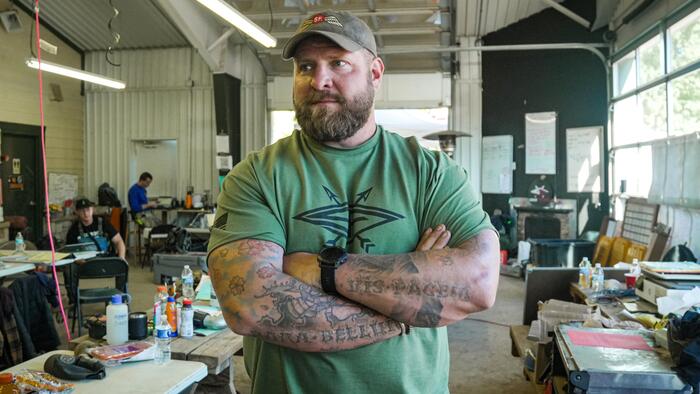In the aftermath of Hurricane Helene, Adam Smith, a former U.S. Army Green Beret, found himself in a battle against time and nature, desperately trying to rescue his 3-year-old daughter and her mother from the widespread devastation in western North Carolina. The hurricane, which reached Category 4 strength, resulted in significant loss of life and destruction in the region—claiming at least 102 lives and obliterating entire towns. As Smith witnessed the level of destruction firsthand, he reflected on the emotional toll and resilience displayed by the community. His own feelings of loss and determination drew him into action, prompting him to initiate Savage Freedoms Relief Operations to assist those impacted and to ensure that communities affected by the disaster wouldn’t be forgotten.
When Hurricane Helene struck, Smith and his fiancée, Taylor Knipp, were returning from Texas when they lost contact with his daughter and her mother. Unable to drive through the flooded highways, Smith’s quest to reach them led him to seek alternative aviation transportation. Once he successfully reached the mountain community where his family was trapped, he saw his daughter running towards him, sparking a resolute commitment to support disaster recovery efforts. The chaotic yet urgent response birthed Savage Freedoms Relief Operations, which gathered numerous volunteers from diverse backgrounds who came together, uniting under a common goal of helping the stricken community.
Operating from the garage of a local Harley-Davidson dealership, Smith’s team transformed the space into an operational headquarters for search and rescue missions. Local volunteers, military veterans, and organizations quickly mobilized to rescue trapped survivors and distribute essential supplies. During the immediate aftermath of the hurricane, these grassroots efforts discovered the stark inadequacies of the bureaucratic response from agencies like FEMA, which were criticized for their slow deployments amidst urgent needs. Smith’s relief efforts, presented as an “off-the-books” operation, garnered local renown as the “Redneck Air Force,” highlighting the effectiveness and determination of grassroots volunteers compared to conventional emergency operations.
As the dust began to settle in Swannanoa, national leaders including President Donald Trump arrived to assess the damage. Amidst the backdrop of political tension and criticism of federal agency responses, Smith’s experiences with community relief and recovery efforts reinforced his belief in the power of local action overcoming bureaucratic inertia. He voiced the need for the political and federal response to focus less on the political implications and more on direct and efficient aid for those affected. Reflecting on his own journey of faith during the recovery, Smith talked about the miraculous instances he witnessed, including timely rescues and supply deliveries that revived hope amongst residents who were devastated by loss.
In light of the community’s ongoing struggles, Smith and his organization shifted from immediate rescue operations to long-term recovery efforts including rebuilding homes and providing crucial assistance as winter approached. He recognized the complexities posed by zoning laws and the need for a sustained, robust recovery framework. Smith discussed the potential for combining private donor funding with nonprofit initiatives to more effectively channel resources to families needing urgent help. Alongside addressing immediate needs, Smith emphasized the importance of ongoing awareness and support from the wider public to ensure that the stories and challenges of western North Carolina residents remain at the forefront of national conversations.
As Smith continues to lead Savage Freedoms Relief Operations, he reflects on the profound changes elicited by Hurricane Helene within both his personal life and the broader community. With the perspective gained from the harrowing experiences of the past weeks, he proposed to his fiancée and reiterated the urgency of cherishing life amidst chaos. Although the physical recovery will take years, the lessons of unity, resilience, and faith amid adversity mark a pivotal moment for the residents of western North Carolina, renewing their commitment to rebuild a stronger future while ensuring that their struggles are not forgotten.

